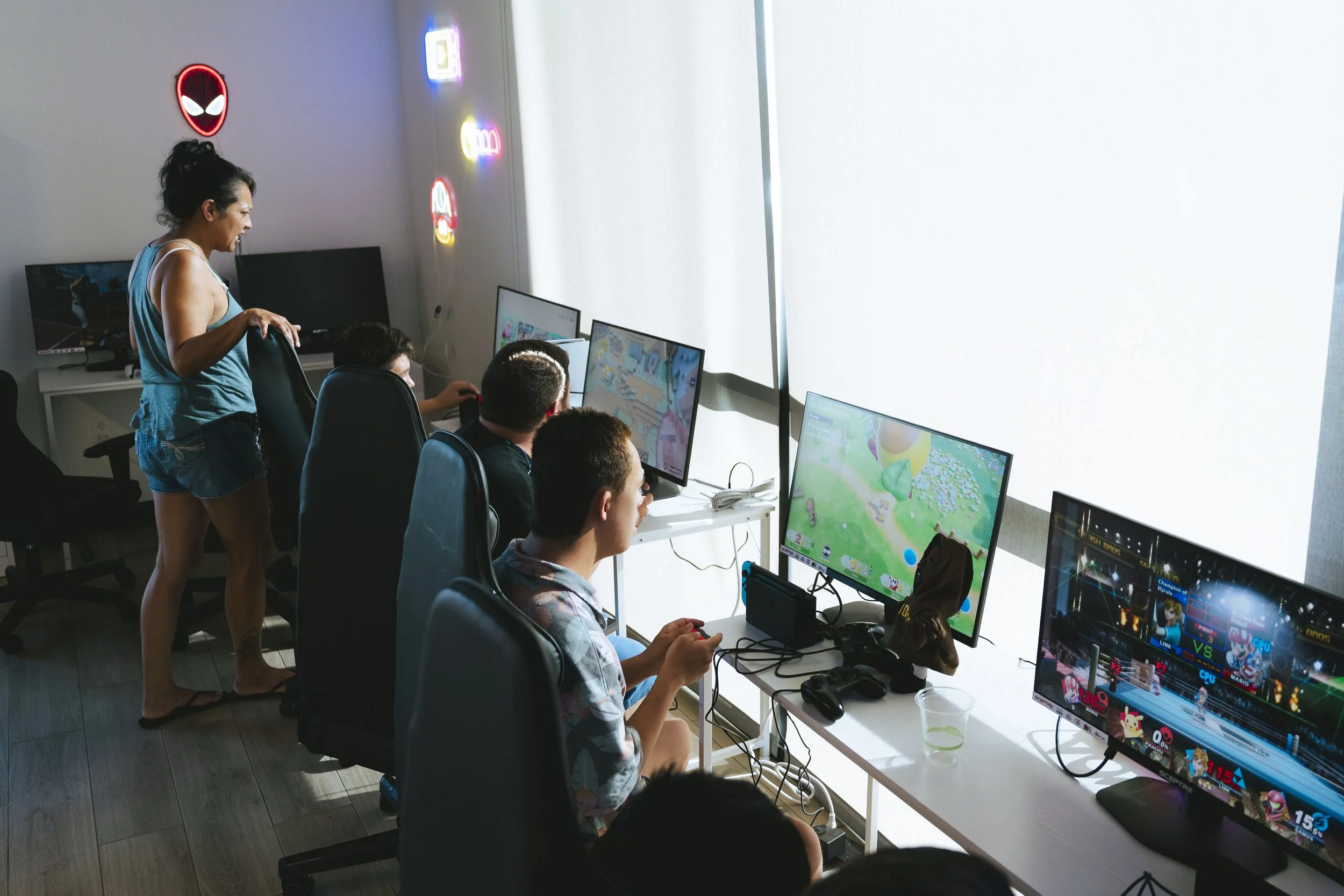How Video Games Are Empowering IDD Individuals to Grow, Connect + Thrive
Imagine a space where your child feels safe, included, and inspired. Where technology is not a distraction, but a bridge to connection. Where gaming becomes a gateway to building friendships, improving memory, enhancing focus, and gaining confidence.
This is not a future fantasy. This is happening right now — and the science is backing it up.
At Unified Esports League (UESL), we’ve built a community where individuals with intellectual and developmental disabilities (IDD) don’t just play games — they grow through them.
Informed by real research and guided by deep compassion, our team designs inclusive programs that bring out the best in every gamer, helping them reach personal goals while building social-emotional skills in a supportive environment. Here's how video games are becoming a powerful tool for progress — and how UESL brings that progress to life.
1. Improving Attention + Cognitive Focus in ADHD
A systematic review published in The Scientific World Journal found that 78% of studies using therapeutic video games reported significant improvements in attention span for children with ADHD.
Games that adapt in real-time, reward persistence, and challenge working memory can help retrain the brain in meaningful ways. These findings aren’t just academic — they’re reflected in our day-to-day work at UESL. Through game-based goals and supportive coaching, we see our clients with ADHD build focus, develop executive function, and take pride in their progress.
When a client stays engaged through an entire team tournament or completes a memory-intensive puzzle, it’s not just a win in the game — it’s a milestone in personal growth.
2. Supporting Social Growth in Autism
According to a 2023 review published in Frontiers in Psychiatry, 68% of included studies on autism and video games showed that gaming helped improve social interaction skills in children and teens with ASD.
Video games provide structured, low-pressure social settings. For many autistic individuals, the predictability of game mechanics, combined with the excitement of play, creates the perfect environment for building social connections.
At UESL, we’ve seen nonverbal clients initiate conversations through cooperative gaming. We’ve watched shy teens become confident team captains. These aren’t rare moments — they are part of the everyday magic that happens when technology meets empathy.
We also prioritize sensory-friendly setups to ensure our spaces are calming and comfortable. In fact, the same study reported that sensory-conscious game design led to a 40% reduction in overstimulation responses — a vital piece of creating safe and successful learning environments.
3. Boosting Memory + Executive Function
The GameUp Project, featured in the Journal of Smart Health, explored the use of serious games for cognitive disabilities. Their findings? Participants showed a 25% improvement in short-term memory tasks after just six weeks of consistent gameplay.
That’s powerful.
Our individualized technology education plans (ITEPs) at UESL are built to harness these same benefits. Whether it’s learning a new tool like a VR headset, remembering a multi-step process in a digital art program, or navigating the rules of a new game, our clients are constantly practicing memory-building skills — and we track that growth every step of the way.
When supported by the right coaching, the right technology, and the right environment, video games become more than entertainment. They become education.
Why It Works at UESL
The science behind video games and IDD support is clear — but it’s our human-first approach that brings those findings to life.
At UESL, every client receives a custom-designed ITEP, a 1:3 coach-to-client ratio, and daily opportunities to build emotional intelligence, communication, and tech literacy in a joyful, inclusive setting. From our esports tournaments to creative media projects to sensory-conscious environments, we meet each individual where they are — and help them grow from there.
Most importantly, we do it all with love, understanding, and respect for the neurodiverse experience.
You’re Not Alone — Let’s
Level-Up Together!
We know that raising a child with autism, ADHD, or other developmental differences comes with a deep desire to find safe, empowering spaces that truly understand your family’s needs.
That’s why we’re here. Whether you’re just learning about UESL or you’ve been searching for a program that actually sees and supports your child — we invite you to explore what we’ve built.
Because when games are guided by empathy and backed by research, they become something far greater. They become a path to possibility.





